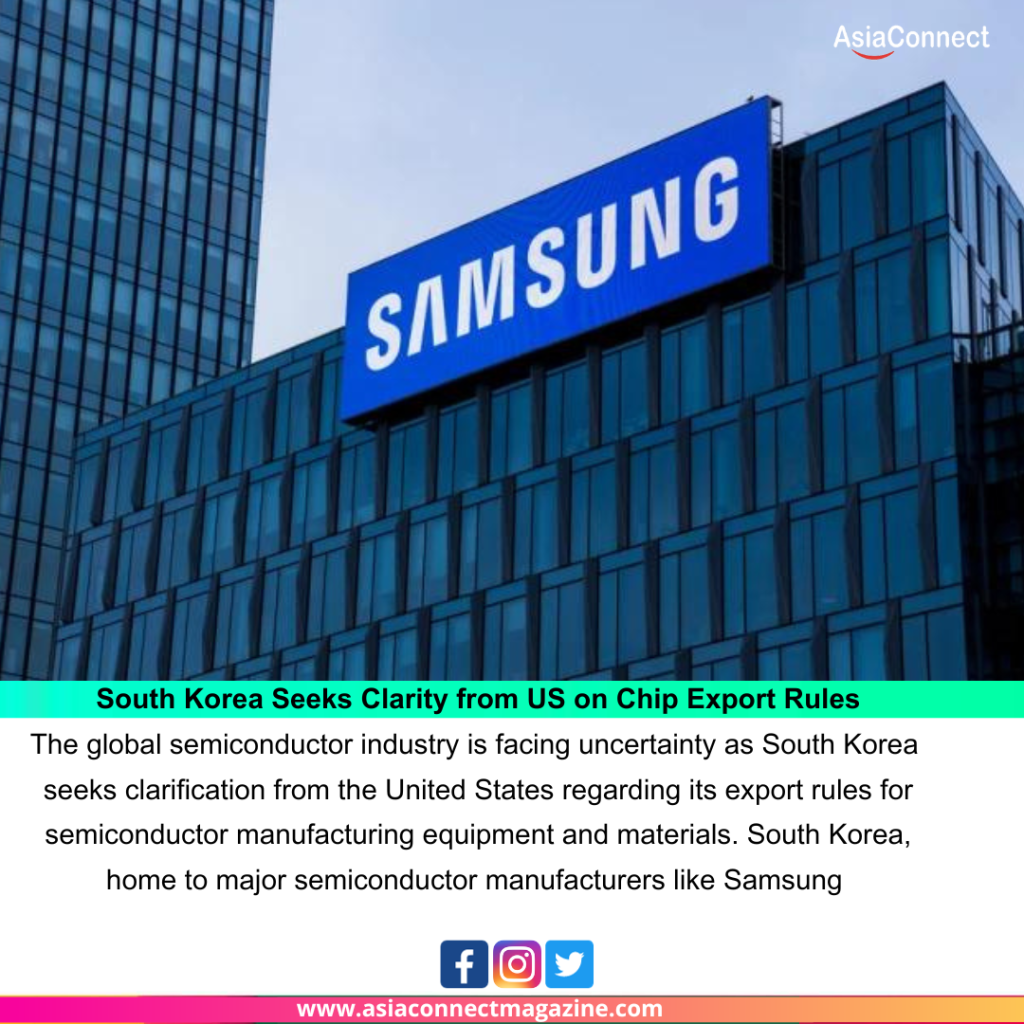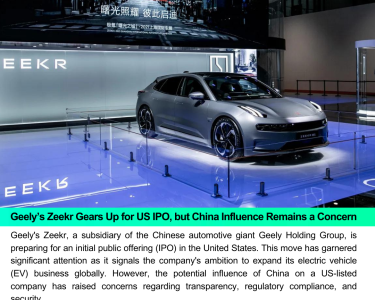
The global semiconductor industry is facing uncertainty as South Korea seeks clarification from the United States regarding its export rules for semiconductor manufacturing equipment and materials. South Korea, home to major semiconductor manufacturers like Samsung and SK Hynix, is deeply intertwined with the global tech supply chain, making the outcome of these discussions critical for the industry’s future.
The Background
The issue stems from the U.S. Export Administration Regulations (EAR), which impose strict controls on the export of certain technologies, including semiconductor equipment and materials, to countries of concern. These regulations are aimed at preventing sensitive technology from falling into the wrong hands and maintaining U.S. national security interests.
However, South Korea, a close U.S. ally and a crucial player in the semiconductor industry, has raised concerns about the ambiguity and unpredictability of these export controls. This uncertainty has the potential to disrupt the global supply chain, impacting not only South Korean companies but also the broader tech industry worldwide.
Why Clarity Matters
- Production Disruptions: South Korean semiconductor manufacturers rely on imported equipment and materials for their production processes. Any sudden changes in export rules or restrictions can disrupt their operations, leading to potential chip shortages and price increases.
- Global Impact: South Korea is a key supplier of semiconductors to various industries, including consumer electronics, automotive, and telecommunications. Disruptions in its semiconductor production can have a cascading effect on global supply chains, affecting businesses and consumers worldwide.
- Investment Decisions: Clarity on export rules is crucial for companies planning investments in semiconductor manufacturing facilities. Ambiguous regulations can deter investment and slow down industry expansion.
- Innovation and Collaboration: The semiconductor industry thrives on innovation and international collaboration. Uncertainty around export controls can hinder knowledge sharing and research partnerships, stifling industry progress.
The Request for Clarity
South Korea has requested clear guidelines and greater transparency from the U.S. government regarding the application of export controls on semiconductor equipment and materials. They are seeking a predictable and stable regulatory environment to ensure uninterrupted semiconductor production.
This request highlights the delicate balance that the U.S. needs to strike between protecting national security interests and maintaining strong partnerships with key allies in the global tech industry.
The Global Semiconductor Shortage
The semiconductor industry has been grappling with a significant shortage in recent years, exacerbated by the COVID-19 pandemic and increased demand for chips in various sectors. Any disruption in the supply chain, such as export control uncertainties, could further exacerbate this shortage.
Companies, governments, and international organizations are recognizing the need to address supply chain vulnerabilities and ensure the resilience of the semiconductor industry. Collaborative efforts and clear regulatory frameworks will be essential in overcoming these challenges.
Conclusion
The semiconductor industry is at the heart of the digital age, powering devices and technologies that shape our lives. South Korea’s request for clarity on U.S. export rules is a crucial step in ensuring the stability and reliability of the global semiconductor supply chain. As discussions between the two nations continue, stakeholders around the world will closely monitor the outcome, as it could have far-reaching implications for the industry and the broader global economy.




